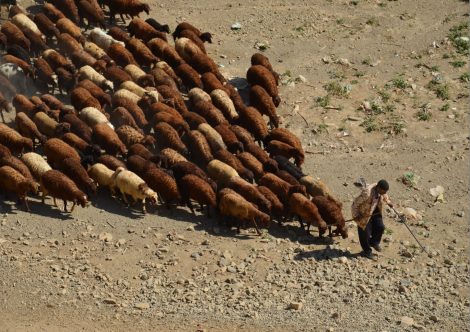Mission
Our mission is to improve animal
health globally, thereby ensuring a
better future for all.

History
Creation of the Office International des Epizooties through the international Agreement signed on 25 January 1924.
Transparency
Ensure transparency in the global animal disease situation
Each Member Country undertakes to report the animal diseases that it detects on its territory. WOAH then disseminates the information to other countries, which can take the necessary preventive action. This information also includes diseases transmissible to humans and the intentional introduction of pathogens. Information is sent out immediately or periodically depending on the seriousness of the disease.
This objective applies to disease occurrences both naturally occurring and deliberately caused. Dissemination is via e-mail, Disease Information and the World Animal Health Information System Interface (WAHIS).
WOAH collects and analyses the latest scientific information on animal disease control. This information is then made available to the Member Countries to help them to improve the methods used to control and eradicate these diseases. Guidelines are prepared by the network of 246 WOAH Collaborating Centres and Reference Laboratories across the world.
Scientific information is also disseminated through various works and periodicals published by WOAH, notably the Scientific and Technical Review (3 issues a year).
International solidarity
Encourage international solidarity in the control of animal diseases
The World Organisation for Animal Health (WOAH) provides technical support to Member Countries requesting assistance with animal disease control and eradication operations, including diseases transmissible to humans. WOAH notably offers expertise to the poorest countries to help them control animal diseases that cause livestock losses, present a risk to public health and threaten other Member Countries.
WOAH has permanent contact with international regional and national financial organizations to convince them to invest more and better in the control of animal diseases and zoonosis.
Sanitary safety
Safeguard world trade by publishing health standards for international trade in animals and animal products
WOAH develops normative documents relating to rules that Member Countries can use to protect themselves from the introduction of diseases and pathogens, without setting up unjustified sanitary barriers. The main normative works produced by WOAH are: the Terrestrial Animal Health Code, the Manual of Diagnostic Tests and Vaccines for Terrestrial Animals, the Aquatic Animal Health Code and the Manual of Diagnostic Tests for Aquatic Animals.
WOAH standards are recognised by the World Trade Organization as reference international sanitary rules. They are prepared by elected Specialist Commissions and by Working Groups bringing together internationally renowned scientists, most of whom are experts within the network of about 246 Collaborating Centres and Reference Laboratories that also contribute towards the scientific objectives of WOAH. These standards are adopted by the World Assembly of Delegates.
Promotion of veterinary services
Improve the legal framework and resources of national Veterinary Services
The Veterinary Services and laboratories of developing and transition countries are in urgent need of support to provide them with the necessary infrastructure, resources and capacities that will enable their countries to benefit more fully from the WTO Sanitary and Phytosanitary Agreement (SPS Agreement) while at the same time providing greater protection for animal health and public health and reducing the threat for other countries which are free of diseases.
WOAH considers the Veterinary Services as a Global Public Good and their bringing into line with international standards (structure, organisation, resources, capacities, role of paraprofessionals) as a public investment priority.
Food safety and animal welfare
To provide a better guarantee of food of animal origin and to promote animal welfare through a science-based approach
WOAH Member Countries have decided to provide a better guarantee of the safety of food of animal origin by creating greater synergy between the activities of the WOAH and those of the Codex Alimentarius Commission. WOAH’s standard-setting activities in this field focus on eliminating potential hazards existing prior to the slaughter of animals or the primary processing of their products (meat, milk, eggs, etc.) that could be a source of risk for consumers.
Since it was created, WOAH has played a key role in its capacity as the sole international reference organisation for animal health, enjoying established international recognition and benefiting from direct collaboration with the Veterinary Services of all its Member Countries. As a mark of the close relationship between animal health and animal welfare, WOAH has become, at the request of its Member Countries, the leading international organisation for animal welfare
